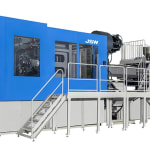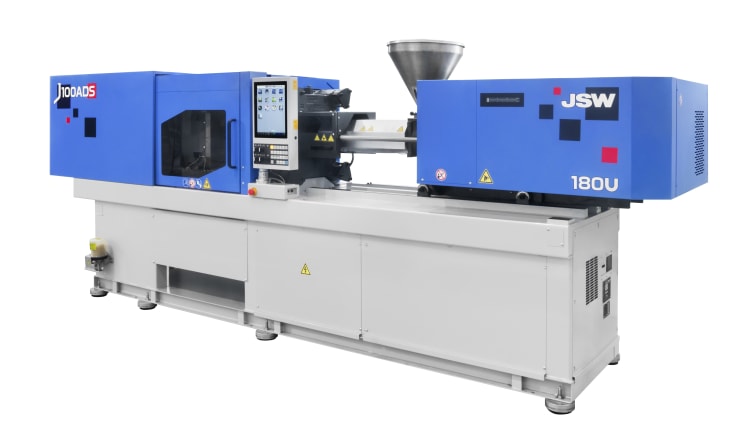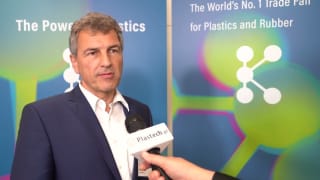
Japan Steel Works (JSW) has expanded its standard lineup with the introduction of the world's first ultra-large all-electric injection moulding machine (e-IMM) featuring a clamping force of 4,000 metric tons (40,000 kN). This development responds to the growing global demand for lighter components, particularly in the automotive industry, where electric vehicles require lightweight exterior parts such as bumpers, tailgates, and battery cases made from plastic. The 4,000-ton class machine also finds application in agricultural and industrial machinery, general merchandise, and home appliances, especially in the United States.
Traditionally, hydraulic systems have dominated the market for large injection moulding machines, but they present challenges such as high power consumption, quality fluctuations, and slower production cycles due to limited speed and acceleration. JSW's new electric system addresses these issues by delivering high productivity, energy efficiency, and consistent quality. The machine's robust and long-life design further distinguishes it from competitors.
Main specifications and features
The newly launched J4000F-22000H is a two-platen machine with a clamping force of 4,000 metric tons (4,400 US tons) and a maximum injection volume of 22,000 cm3 (approximately 18.6 kg in polypropylene equivalent). Key features include:
- Improved productivity: The industry's fastest dry cycle, resulting in a 10% productivity increase over the latest hydraulic systems, thanks to an electric servo motor drive and JSW's proprietary mechanism.
- Energy and cost savings: Power consumption is reduced by 15–20%, cooling water by 50%, and hydraulic oil by 70% compared to hydraulic systems. This translates to a 15–20% reduction in annual CO2 emissions and over 20% lower running costs.
- Space efficiency: At 17.4 meters, the machine is 12% shorter than comparable hydraulic systems.
- Long life and robust design: High rigidity mold platen and clamping bed, along with a high-performance movable platen support mechanism, ensure long-term precision and reliability.
JSW at K 2025: All-electric focus
At the upcoming K 2025 trade fair, JSW will present a comprehensive all-electric portfolio in hall 13, booth B 77. Alongside solutions for blow moulding and extrusion, three injection moulding machines from the J series will be showcased, with clamping forces of 800 kN, 2,200 kN, and 6,500 kN. These all-electric systems are recognized for their precision and efficiency across various plastics processing sectors.
The J80ADS (800 kN) will demonstrate the production of a cover panel in recycled ABS, with part removal and inspection automated by SCARA and 6-axis robots. The J220ADS will be shown as a two-component application using a FLiP auxiliary unit, while the J650ADS (6,500 kN) highlights advancements in large all-electric machine design. JSW's technology ensures that electricity is only consumed during active clamping or injection, supporting clean operation and sustainability - particularly valuable for clean-room industries. The absence of hydraulic oil minimizes contamination risks, and the machines are quieter and generate less heat. Air-cooled drives and OPC UA interfaces for ancillary equipment further enhance operational efficiency and connectivity.

JSW's European presence is managed by JSW Plastics Machinery Europe, headquartered in Warsaw, with a network of 16 agencies across Europe. In Germany, KT-Sakkas has supported JSW since 2007, offering sales, service, and spare parts, as well as designing complete injection moulding systems in cooperation with peripheral equipment suppliers. A technical center near Herzogenaurach demonstrates JSW's all-electric systems to customers, reflecting the company's commitment to supporting both standard and specialized applications, including vertical, horizontal, multi-component, and two-platen systems.
Founded in 1907, JSW has delivered over 80,000 injection moulding machines worldwide since 1961, with its first all-electric model introduced in 1988. The company continues to drive innovation in the plastics industry, focusing on sustainable, efficient, and high-precision solutions for global markets.


